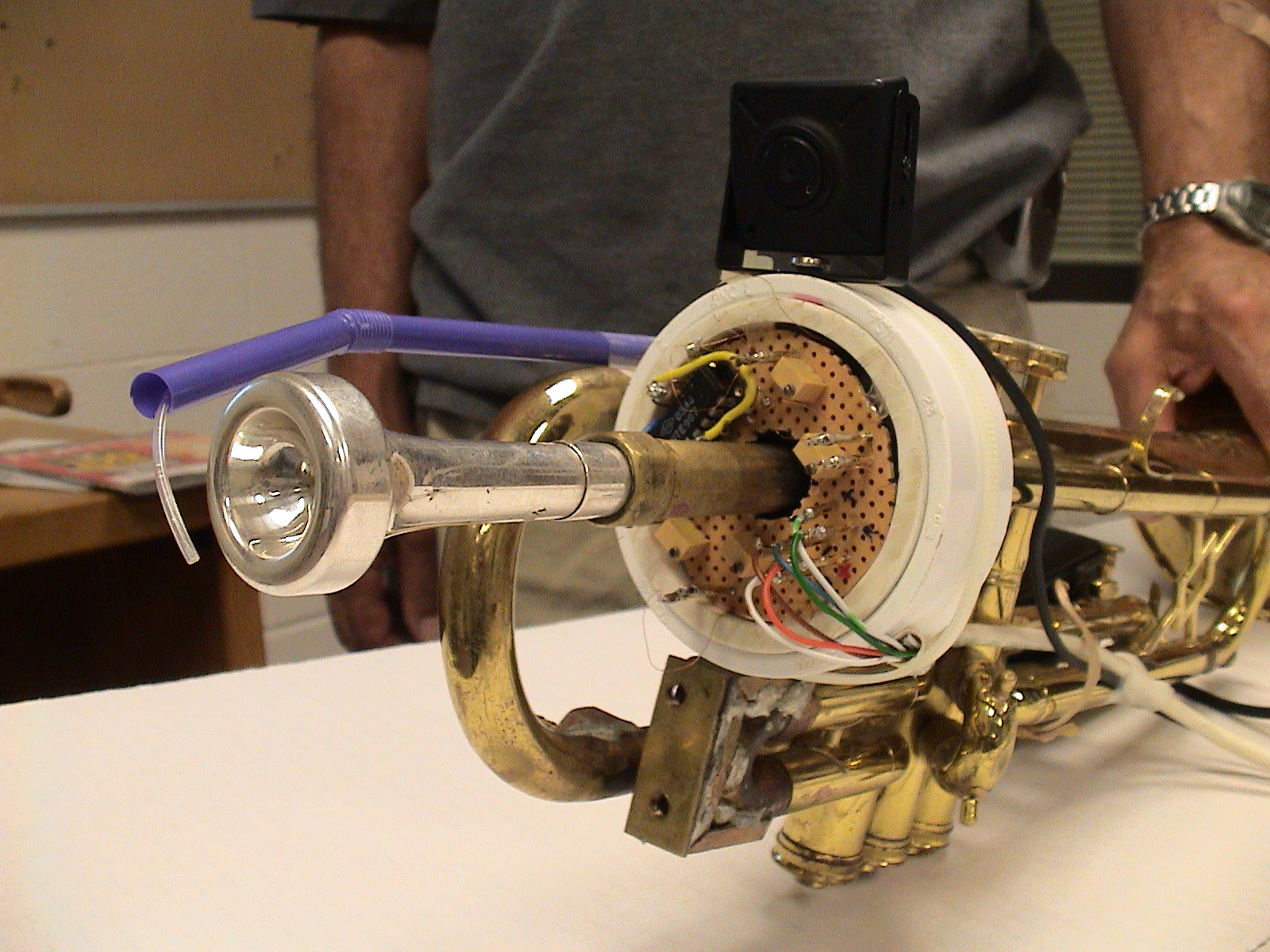|
Responses of trumpeters and horn players have been examined
in order to understand the effect of air support on the embouchure, extraneous
muscle tension, mouthpiece pressure, and quality of performance. We are
investigating the behaviors and skills required to control air at the
embouchure and to record the impact on (1) the quality of the sound produced,
(2) the range of pitches that can be produced, (3) control of musical
dynamics (loudness), and (4) perceived difficulty.
Research participants include college level horn and trumpet players.
Each performer was asked to play an arpeggio at three dynamics (pp, mf,
ff), a two-octave concert Bb scale with three types of articulation, their
three lowest and highest notes, and an etude. Chest bellows were used
to measure expansion of the upper chest and abdomen. Gas pressure sensors
attached to a fine tube placed in the corner of the mouth were used to
measure air pressure inside the mouth. A force sensor placed in a sleeve
between the mouthpiece and the instrument was used to measure pressure
on the embouchure. Extraneous muscle tension was measured electromyographically.
All measures, including sound, were digitized and integrated into a single
data file.

Preliminary results confirm the expectation that force applied to the
mouthpiece increases with pitch. This increase is nonlinear, increasing
approximately one pound per square inch for each octave and then one pound
per square inch for each additional note. For some performers, internal
air pressure just prior to note release accurately predicted pitch. Similarities
between horn players and trumpeters on the same concert pitches were also
observed. Analysis of the interrelationship between air pressure, embouchure
pressure, sound quality, and musicality will be reported.
These results demonstrate that it is possible to study dynamic changes
in the air support system during brass performance. Understanding these
changes should help us differentiate expert from novice performance and
to understand the dynamics of performance difficulty.
|

